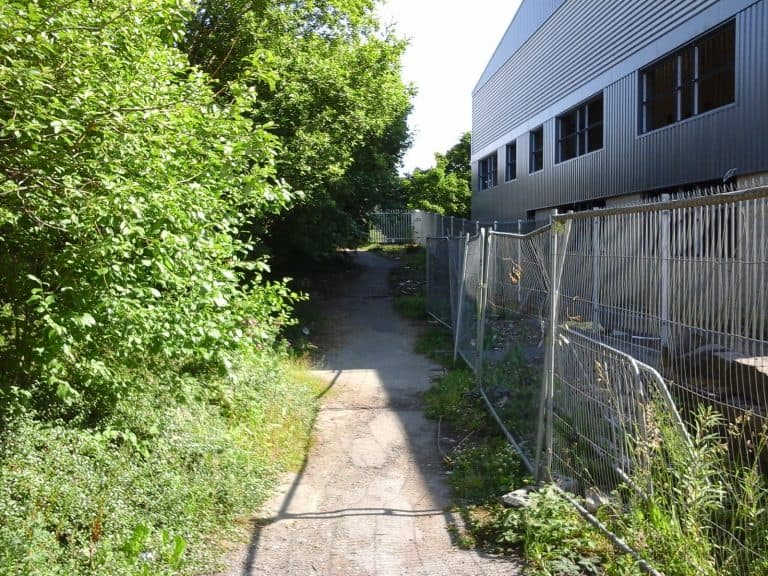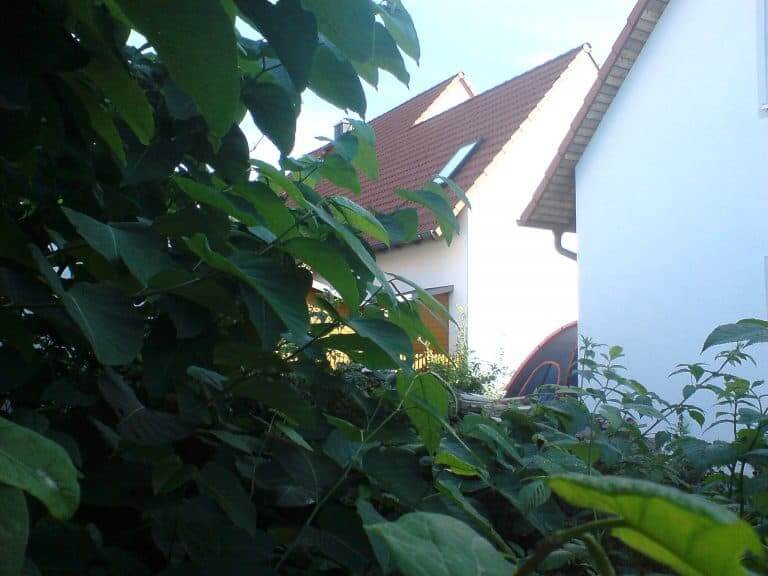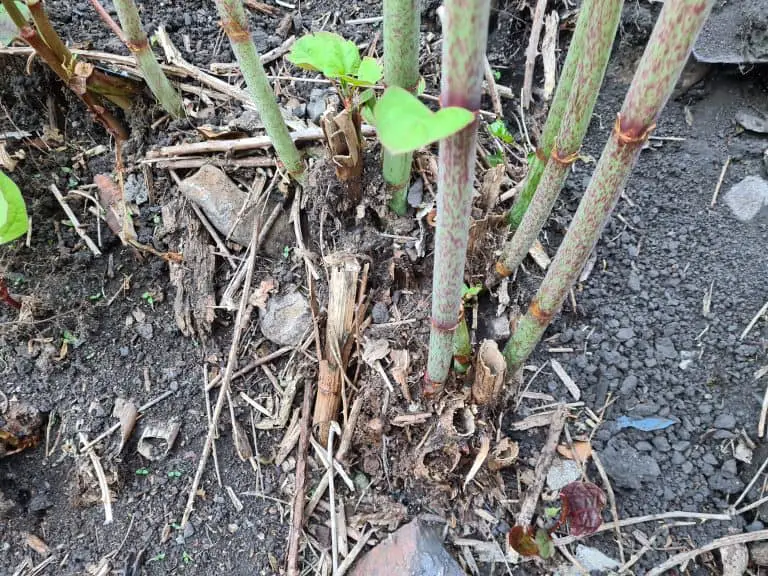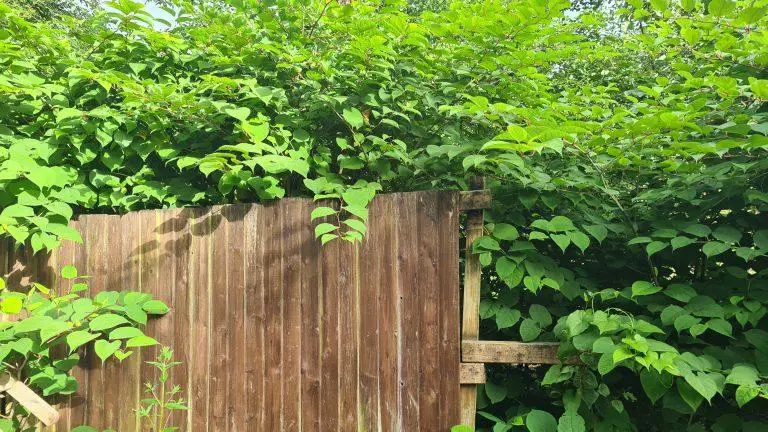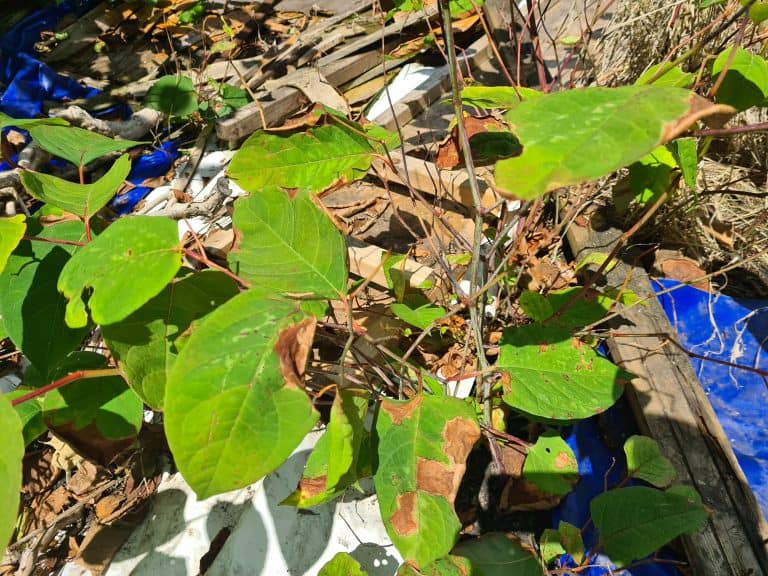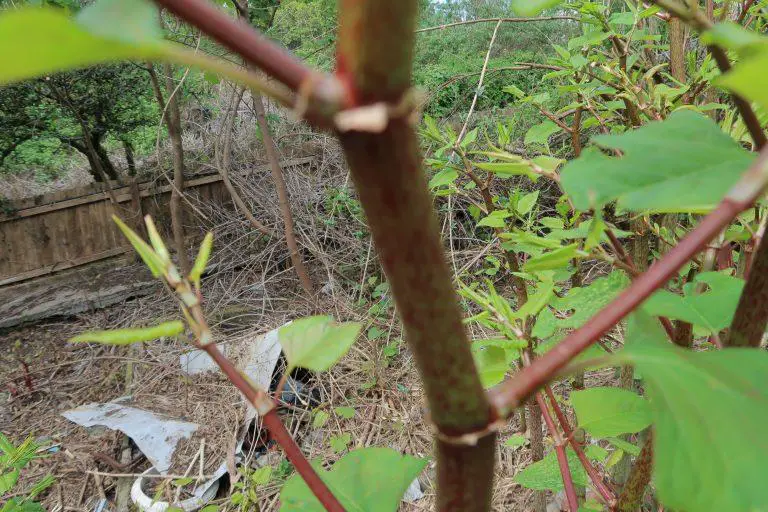Japanese knotweed is an invasive species that can damage landscapes and structures. It is difficult to remove, but there are herbicides available that can help. In this blog post, we will discuss the best weed killers for Japanese knotweed and how to use them.
We will also provide some tips for preventing this plant from becoming established in your landscape and recommend the best Glyphodsate weed killer for Japanese knotweed too.
Japanese knotweed is a highly invasive weed that can take over your garden and property if left untreated. Japanese knotweed grows extremely quickly and can easily overtake your garden or property if left untreated.
The best way to get rid of Japanese knotweed is with a glyphosate weed killer. Our glyphosate weed killer is the best on the market, and it’s specifically designed to kill Japanese knotweed.
What is glyphosate and how does it work to kill Japanese knotweed plants
Japanese knotweed is one of the many plants that glyphosate can be used to control. When applied to the leaves of the plant, glyphosate is absorbed and translocated to the roots, where it prevents the plant from growing.
Glyphosate is a broad-spectrum, systemic herbicide that is used to kill a wide variety of plants. It works by inhibiting the production of certain enzymes that are essential for plant growth.
Glyphosate is an effective herbicide against Japanese knotweed, but it must be used carefully to avoid damaging other plants nearby.
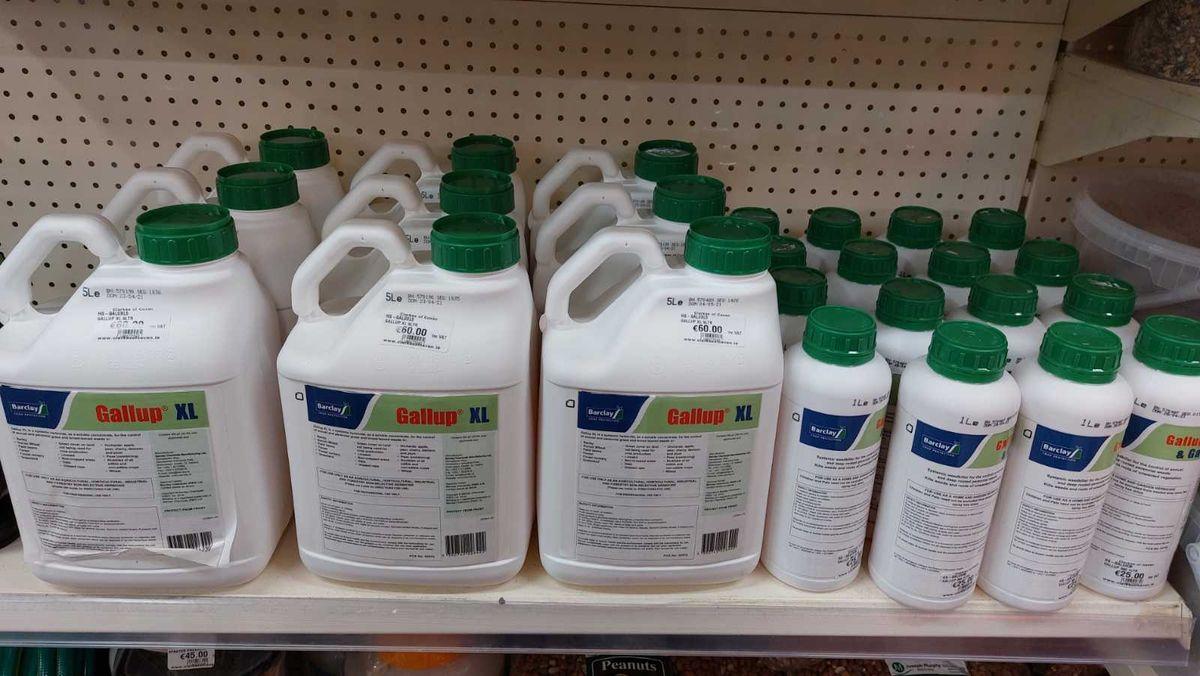
The benefits of using glyphosate as a weed killer for Japanese knotweed
Glyphosate is a herbicide that is effective at killing Japanese knotweed. When used as directed, it can help to control the growth of this invasive plant without harming people or pets.
In addition, glyphosate is relatively inexpensive and easy to find, making it a popular choice for weed control.
While there are some risks associated with using glyphosate, such as the potential for water contamination, these risks can be minimized by following directions carefully and using proper safety equipment.
Standard benefits:
- Kills a variety of plants, including Japanese knotweed
- Inexpensive and easy to find
- Minimizes water contamination risks
Emotional benefits:
- Control the growth of an invasive plant without harming people or pets
- Feel good about taking care of your garden or property
How to safely apply glyphosate to kill Japanese knotweed plants
Here are some tips for safely applying glyphosate to kill Japanese knotweed plants:
- Wear protective clothing, including gloves, a mask, and long sleeves.
- Mix the glyphosate with water in a safe container.
- Apply the glyphosate solution to the leaves of the Japanese knotweed plants.
- Avoid contact with the herbicide solution, and wash your hands thoroughly after application.
- Monitor the area for regrowth and treat new plants as they appear.
By following these simple steps, you can safely and effectively control Japanese knotweed plants without harming yourself or the environment.
Which glyphosate weed killer products are best for killing Japanese knotweed
To choose the best glyphosate weed killer for your needs, look for a product that is specifically designed to kill Japanese knotweed.
Glyphosate products come in both liquid and granular forms, so you can choose the application method that best suits your needs.
Be sure to read the label carefully to ensure that the product you select will be effective against Japanese knotweed. With the right glyphosate weed killer, you can get rid of this troublesome weed once and for all.
With so many weed killers on the market that contain glyphosate, you have many to choose from. Our recommendations are:
Precautions you need to take when using glyphosate
Glyphosate is most effective when applied to young plants, as older plants are more resistant to the herbicide. However, glyphosate can still be harmful to the environment if it is not used correctly.
The chemical can leach into groundwater and soil, causing harm to other plants and animals. As a result, it is important to use glyphosate only as directed and to dispose of any unused herbicide safely.
When using glyphosate to control Japanese knotweed, always follow the manufacturer’s instructions and take precautions to avoid contact with skin or clothing.
Care should also be taken to avoid harming non-target plants, as glyphosate will kill any plant that it comes into contact with.
If you are unsure of how to safely use glyphosate, seek advice from a qualified professional. With proper care, glyphosate can be an effective tool for controlling Japanese knotweed.
Possible side effects of using glyphosate weed killer
Glyphosate is a popular weed killer that is used in both commercial and home settings. While it is generally considered to be safe, there are some potential side effects that users should be aware of.
Japanese knotweed is one plant that is particularly susceptible to glyphosate. If the weed killer comes into contact with the plant, it can cause the leaves to turn brown and the stems to distortion. In severe cases, the plant may die.
Studies have shown that exposure to glyphosate can cause eye and skin irritation, as well as respiratory problems. In addition, some research has suggested that glyphosate may be linked to cancer, although further study is needed to confirm this.
As a result, it is important to use glyphosate weed killers with caution, and always follow the instructions on the label carefully.
In conclusion
Best Glyphosate Weed Killer for Japanese Knotweed
There are many weed killers on the market that contain glyphosate, but not all of them are effective against Japanese knotweed. To choose the best product for your needs, be sure to read the label carefully and select a weed killer that is specifically designed to kill this troublesome plant.
With the right product, you can get rid of Japanese knotweed once and for all. Just be sure to take precautions when using glyphosate, as the chemical can be harmful to the environment if not used correctly.
Want to know more about Japanese knotweed?
Knotweed Removal aims to provide the most up-to-date information, help, and advice for YOU to make informed decisions. If you are unsure or uncertain about how to proceed, please reach out to us and we will gladly come back and advise you as best we can.
Governmental advice can be found here and the UK law covering the removal of Japanese Knotweed as stated under the Wildlife and Countryside Act 1981 can be found here.
The best means to contact us is via our email – hello@knotweedremoval.tips
Do not forget we have a library of blogs covering many areas relevant to Japanese Knotweed, our free downloadable How-to Guides, and Product Reviews on the latest methods being employed to eradicate or remove Japanese Knotweed.
Knotweed Removal, UK

